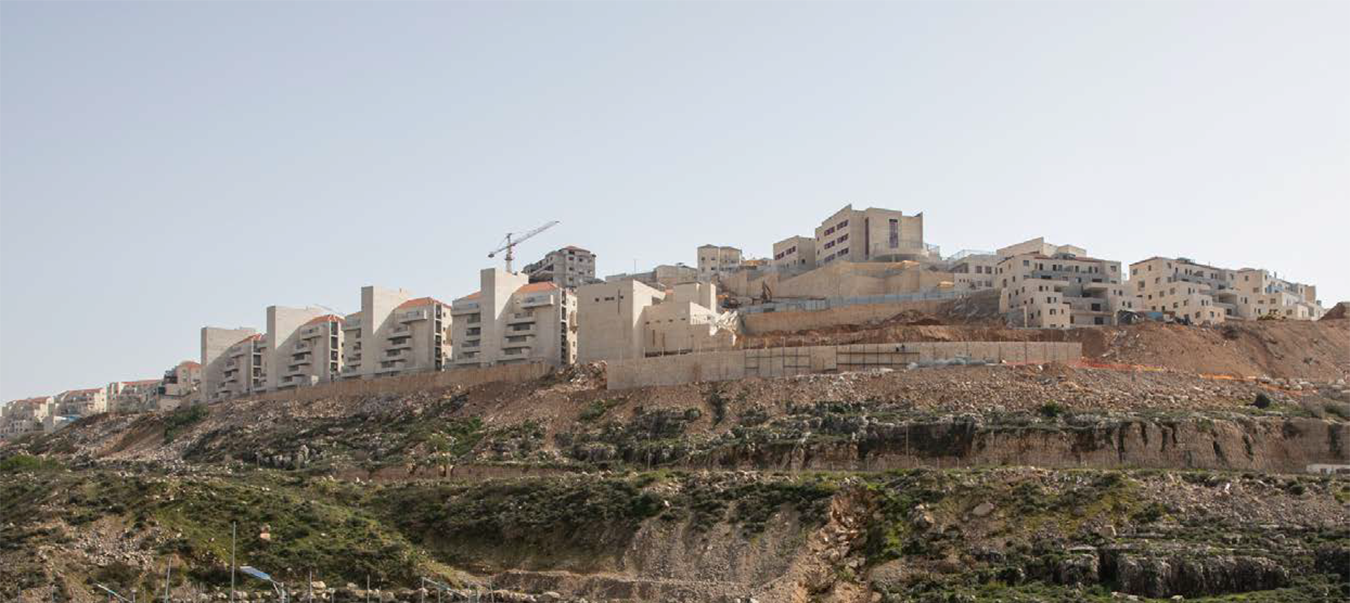Nine Dutch banks, pension funds, insurers and asset managers invested 12.5 billion euros from 2019 to August 2022 in companies involved in the illegal occupation of Palestinian territories. This puts them at high risk of contributing to systematic human rights violations.
Don’t Buy Into Occupation
This is evident from the Don’t Buy Into Occupation-report, the latest report from an international coalition of 24 NGOs, published today. They conduct research into the financial ties between European investors and companies active in the Israeli settlement economy. ING is at the top of the list of Dutch investments: with nearly 7 billion euros, the bank is the tenth largest European lender. Pension fund ABP invests more than 1.5 billion, followed by investments of millions by Rabobank and ABN Amro, pension fund PFZW, insurer Aegon and asset managers MN Services, Cardano Group and Van Lanschot Kempen.
Hundreds of companies involved in illegal settlements
The Israeli settlements are illegal under international law. Yet hundreds of Israeli and international companies are closely involved in its construction and expansion: they supply the bulldozers with which Palestinian houses are demolished, build roads and telephone networks or stimulate the economy by, for example, offering tourist accommodation. In 2020, the UN published a list of companies it believes are at high risk of contributing to human rights violations in the occupied Palestinian territories through such activities. The Israeli research center WhoProfits also has such a database. It includes, for example, the large German construction company Heidelberg Materials, the American communications company Motorola, but also the Dutch Booking.com.
Talk to companies or stop investments
According to international standards, banks and investors must ensure that the companies they invest in are not involved in human rights violations. They must talk to these companies or, if that does not yield results, stop their investments. On paper, the surveyed financial institutions commit themselves to this responsibility. But according to Thomas van Gool of the peace movement PAX, one of the three Dutch NGOs in the coalition, practice is lagging behind: “The serious and structural human rights violations that take place in the occupied territories have been known for a long time. We remind the Dutch financial institutions of their responsibility and ask them in 2022 to really stop investing in companies that are active in the settlement economy in the occupied territories.”
Good example follows
Van Gool: “After the Russian invasion of Ukraine, we saw that financial institutions immediately condemned the invasion and occupation and withdrew en masse from Russian investments. Then you hope that a good example will follow. However, around Israel and the occupied Palestinian territories, the same financial institutions remain remarkably silent with the exception of a few. We believe that financial institutions should not apply double standards. Investing in companies involved in serious violations of international law, whether by Russia or by Israel, is wrong.”
It’s not all doom and gloom. Last year, a number of companies set a good example. For example, the American General Mills closed a factory located in an illegal settlement in 2021 and Ben & Jerry’s announced that it would stop selling products in the occupied Palestinian territories. Norway’s two largest pension funds also announced divestments from companies involved in the settlements.
PAX, BankTrack and The Rights Forum are part of a coalition of 24 European and Palestinian NGOs. The report Don’t Buy Into Occupation is the second report of the coalition and was published on December 5, 2022.




